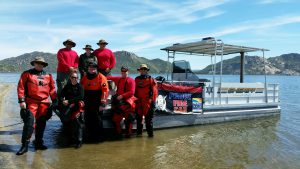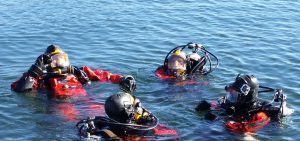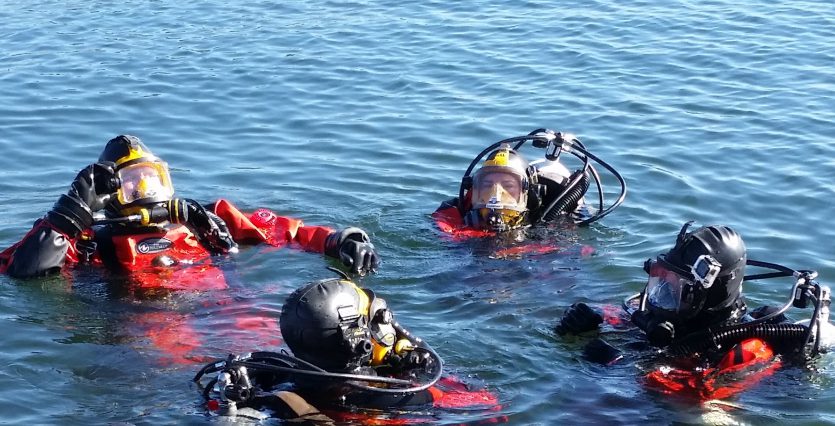 Liability is one of those catchalls, a sometimes magical term used as a reason either to not do something or to do something that may seem unnecessary. The word has become so powerful and is used so frequently that it’s become a go-to answer to “Hey, why don’t we [insert brilliant idea]?” or “Why do I have to [insert seemingly mundane task]?” Answer: “Because of Liability.”
Liability is one of those catchalls, a sometimes magical term used as a reason either to not do something or to do something that may seem unnecessary. The word has become so powerful and is used so frequently that it’s become a go-to answer to “Hey, why don’t we [insert brilliant idea]?” or “Why do I have to [insert seemingly mundane task]?” Answer: “Because of Liability.”
There’s usually a very good reason behind the use of this word, even if not so apparent. Most of the time it’s because there is a known associated risk of performing a task, or not performing it. The concern that something may create a problem, do irreparable damage, or cause an injury is based on both fear and experience. When it relates to divers who are engaged in or training for public safety, it takes on new dimensions and can become a much larger issue.
I’m not an attorney: I’ve never claimed to be a risk management expert or any type of legal counsel. What I can do is speak from experience, and while the experiences I’ve had may not be those of the average person, they do teach a thing or two about liability and looking for ways to minimize your exposure to it.
No one wants to be sued. It creates a nightmare of legal entanglements, it is always costly, and the damage of just being mentioned in a lawsuit can be catastrophic to your good name and your business. Who is going to take their “loved ones” to someone who is a defendant in a lawsuit? I can tell you — no one.
I’ve heard the reasons and justifications before. “If they take me to court and win, they can have it,” or “Eh, let ’em sue, I’ve got nothing worth taking.” They are typically spoken by someone who’s never had to endure the experience of being deposed or being called into court over a decision they made, which at the time may have seemed so inconsequential, they don’t remember it. Having one’s actions examined with a microscope is an enlightening experience. Even if you’ve done nothing wrong, it’s still a difficult process.
Minimizing your exposure to liability (there’s that word again) is something any instructor can do and absolutely should! While no one is completely bulletproof when it comes to being sued, one need only read the news to see that we live in a very litigious society. Teaching a friend, for example, you may be sure the friend would never sue; but then something happens, and there are medical bills in the hundreds or thousands of dollars, and the friend’s insurance company decides to “share” some of the burdens of paying these bills with you or your insurance company. Your friend had no say in it, but it happens anyway.

NAUI discusses risk management in detail during leadership training. We lecture that in order to be found liable, or at fault, there must be four specific factors in place: First, you had an obligation to another; second, you broke the rules or did something a reasonable person would deem out of the scope of your training or abilities; third, there must be a loss of some kind; and last, the incident was directly related to that loss. The loss may include anything from an item, such as a mask or fin, all the way up to an injury or loss of life.
We are the very definition of what the law describes as an expert in regards to scuba and its training, but we are not generally experts in risk management. Many of our members are practicing attorneys who could give you sound legal advice and tell you the best way to make sure you never get sued is to never leave your house. That’s not really practical.
There are ways to reduce your risk. You can reduce the risks by following a few simple steps. This is not legal advice, but it may make your life easier and help reduce your exposure to fault if something terrible happens. When someone loses their life, or there is substantial damage to something, there are many who wish to blame someone. We hope that none of us is ever the one the finger is pointed at, but following these suggestions may insulate you a bit better.
First and foremost, follow the rules! This may seem obvious, but I know most of us have seen others do something they shouldn’t. They may say, “Well, we’ve been doing it this way for years and it’s been fine.” We have guidelines and standards for reasons. The reasons are based on past experiences or sound legal counsel, which have shown a certain practice is the best way to do something. By choosing to break the rules or ignore standards, you’re asking for trouble. It’s better to exceed the standards, to go above and beyond. It is never a bad thing to set higher training benchmarks for your students.
Don’t do dumb things. Once again, sometimes it’s not so obvious until someone points it out.
Keep records. Get the proper forms signed, write down what you did, make copies (either paper or digital). Ensure your practices and techniques are on par with the safest methods out there.
Don’t be afraid to be descriptive. When I began teaching scuba, I brought the “notebook method” with me from my police work. I wrote notes about every student, sometimes in the margins of the slate but also on paper, including their struggles, ease, etc. The shop I was working for would read these notes, often laughing at the details. Soon the other instructors were being told to be more detailed in their notes, especially during team teaching. It conveyed information to others, but it also created a record of the specific training dives and the details.
Upon completion of a Public Safety Diver course, I submit a “course completion report,” describing in detail all of the activities, lectures, tasks, inspections, training scenarios and training dives. I also describe who had issues and what it will take to overcome these issues. If it was serious enough, perhaps they should not be assigned to dive status and would be better suited to another position. It’s not personal, it’s a record of performance.
If an incident occurs, the actions you performed or didn’t will be examined in painstaking detail, repeatedly. A savvy attorney need only look as far as your first mistake or where you violated standards. By ensuring we comply with the standards and do what we’re supposed to, we are taking liability out of the equation.
If looking through your actions step by step, you followed the rules, kept within standards, and did what a reasonable, experienced, and professional instructor would do, you’ve kept the burden of fault away from yourself.
Imagine you’re looking into an incident, and during the deposition (where attorneys ask incident-related questions — over and over), you find the instructor did exactly what he or she was supposed to. The investigation may shift over to the equipment: Was it properly serviced and above suspicion, and do you have proof? The path to assigning blame begins to turn away from the instructor.
What if during the deposition, it is discovered the instructor violated a standard. It may have been something small and simple that had nothing to do with the incident, but the standards were violated. Now the investigation locks onto that and begins looking at every single decision after that. Which standards did the instructor choose to violate and why? Sadly, even a small diversion from common and accepted practices may take a civil lawsuit to the attention of the local district attorney’s office. Once they begin looking into it, things can get very complicated (and very expensive).
Be a professional. In our world of diving instruction, the need to be competitive and provide what customers are looking for can be demanding. As tough as it might be to lose a sale because a customer demands something that is outside the scope of what you’re comfortable doing, or is just beyond your expertise, don’t give in. By sticking to your guns and informing the customer you are a professional and a true professional wouldn’t do this, the prospect may decide you are, after all, the better option than the crazy stuff some other instructor promised.
======================================
Michael Sieverman is a retired senior police officer, public safety dive instructor and is still employed as a contract background investigator for police applicants. He is the current chairman of NAUI’s public safety diving committee and was instrumental in developing NAUI’s Public Safety Diver course. He is an active instructor, living and working in Southern California, where he can be found promoting NAUI at the NAUI booth at the Long Beach Scuba Show every year.


